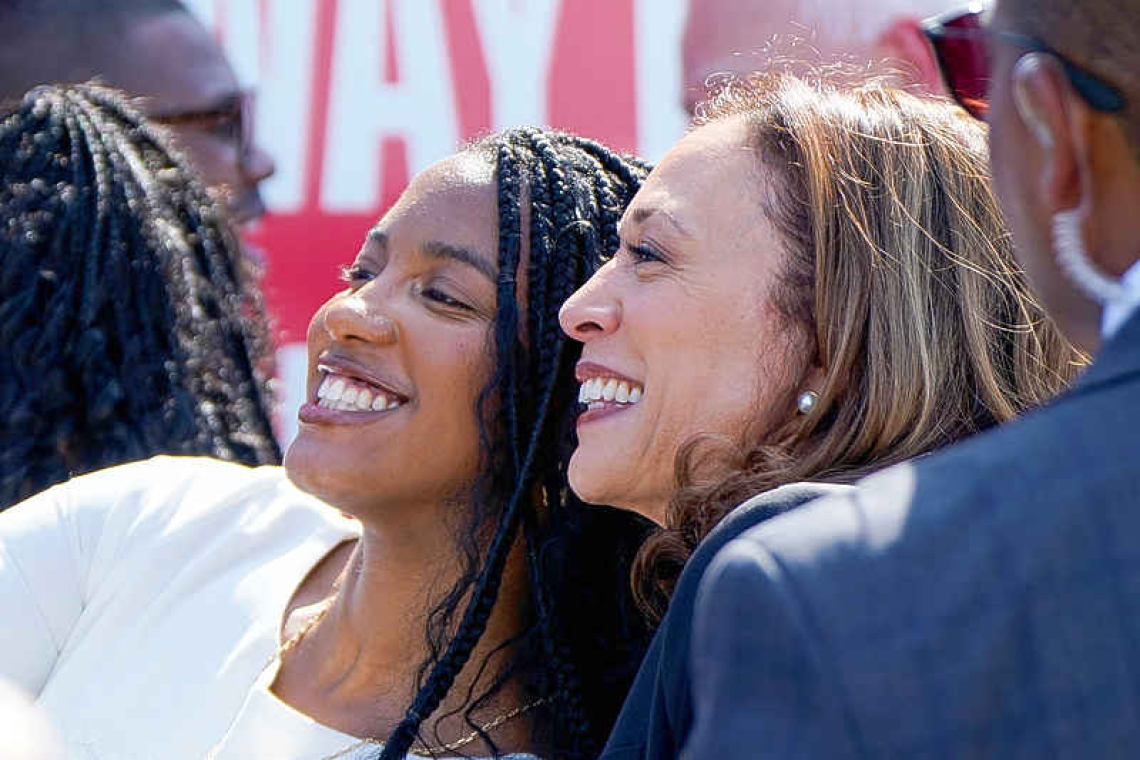SAN FRANCISCO--Venture capitalists pledging support for Kamala Harris' White House campaign listed priorities in a survey released
on Wednesday that include women's reproductive rights, climate change and a friendlier stance toward startups.
Of about 800 venture capitalists who signed an open letter of support, 225 chose to detail their reasons for endorsing the Democratic
candidate and the policies they favour in a survey being reported first by Reuters. Nearly all of the 225 thought it was a mistake for the
Supreme Court to overturn Roe v. Wade, which recognized abortion rights. Some felt this hurt women at work.
"These are not social issues. These are actually business issues," said Leslie Feinzaig, CEO of Graham & Walker who started the pledge.
Investors and executives said they viewed Vice President Harris, a Californian with ties to Silicon Valley, as a tech-savvy candidate open
to engaging with industry. They voiced nostalgia for the Obama White House, which a decade ago recruited from and lauded the
technology sector. Politicians in Washington have since taken a more critical tone.
The open letter, called "VCs for Kamala" and disclosed in July, includes such venture capitalists as Reid Hoffman from Greylock and
Vinod Khosla from Khosla Ventures.
The 225 who filled out the survey did so anonymously. They were 62% men, 66% white, largely aged 35 to 64. Although no one was
asked to provide party affiliation, among those who self-disclosed, 70% were Democrats and 30% were Republicans or independents,
the poll organizers said.
Some 97% wanted leaders who are "knowledgeable about technologies like AI and crypto to build effective regulations," and nearly
92% believed the U.S. government needs to hire more technology talent, the survey results showed.
Reuters also interviewed entrepreneurs outside the scope of the investor-focused survey to look at what Harris' Silicon Valley supporters wanted more broadly. Regarding AI, "We need the smartest people in government who know what to do on the military and civilian side, who know what’s coming," said Eric Ries, an entrepreneur and author of "The Lean Startup".
The United States has lagged Europe in passing comprehensive AI legislation, though President Joe Biden issued an executive order last
year requiring AI developers to report safety tests when there are security or health risks. Aaron Levie, CEO of cloud-computing company Box, said rules for now should focus on applications of technology more than underlying AI models that have yet to mature.
"Regulation is going to set an important trajectory for this industry and our leadership in AI in the long run," said Levie. He said
immigration would, too.
Some 94% of poll respondents said the U.S. needed to make more high-skilled, H-1B visas available, a staple for tech companies
that draw talent from abroad. Silicon Valley also wants an easier path for startups to go public or sell to incumbents, the survey results
and interviews showed.







